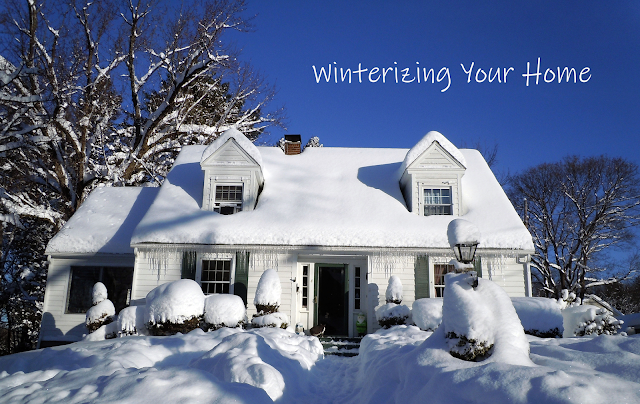
Winter in Illinois brings frigid temperatures, heavy snowfall, and harsh weather conditions. As a homeowner, it is essential to take proactive steps to prepare your home for the winter months. Proper winterization not only enhances your home’s energy efficiency but also helps to prevent costly damage and ensures the comfort and safety of your family. This article will guide you through the crucial steps to winterize your home in Illinois, helping you stay warm and minimize any potential issues.
Turn Off Outdoor Faucets
As the weather turns from warm to immediately freezing here in Illinois these days, homeowners need to start think about properly winterizing their homes. On the very top of this list of things to do is taking care of outdoor hoses and sprinkler systems. Lawn and Garden hoses and all sprinklers should be disconnected, rolled up, and stored for the winter in your garage or basement.
Second, shut off all outdoor faucets but first let any remaining water drain out. Once the faucet is shut off and drained, leave your faucet on until warmer weather is consistent, usually in the Spring.
Seal Air Leaks
Identifying and sealing air leaks can significantly reduce heat loss. Examine areas where different materials meet, such as windows, doors, and electrical outlets. Apply caulking or weatherstripping to seal any gaps or cracks that allow cold air to enter and warm air to escape. This simple measure will help stabilize indoor temperatures and save money on energy bills.
Service Your Heating System
Before winter arrives, it is essential to have your heating system serviced by a professional HVAC technician. They will perform necessary maintenance, including cleaning filters, inspecting the furnace or boiler, and verifying the efficient operation of the system. A well-maintained heating system ensures optimal performance while reducing the risk of unexpected breakdowns.
Make Sure Your Home’s Pipes Are Insulated
One thing you can do when taking extra precautions to winterize your home’s plumbing is to purchase a roll of thick insulation that you can wrap around your pipes. This insulation is made of fiberglass or polyethylene, and can be purchased online or at a hardware store or Menard’s, Home Depot, etc.
For even more extra protection from frozen pipes in Winter, we recommend wrapping your home pipes in heated tape before you apply the insulation to give them added protection from freezing temperatures and so a burst pipe emergency in your home doesn’t occur. Please read any of the manufacturer instructions for this tape and insulation when approaching any DIY projects like this, to be sure you are doing everything correctly.
Fix Any Cracks in Your Home Walls
Another way to prepare that your home’s pipes may freeze in Winter involves fixing exterior cracks in your home walls. This is an common and often effective way to prevent freezing air from getting into your home and affecting any sudden change of temperature of your pipes. Locate any cracks and use caulking or spray foam installation to fill them in.
Examine Your Furnace
Turn on your furnace to make sure it works properly in advance to it getting freezing outside. Change the filter, and continue to do so a few times throughout the winter season. Clean filters improve the airflow and efficiency of the furnace, and can help to prevent fires.
Install Storm Windows
If having new windows like this isn’t in your budget budget this Winter, consider an effective alternative of a window insulator kit. Such kits consist of plastic sheeting that is applied to interior windows, usually blow dried and taped on and can easily be removed in the Spring. At an average of about $5 per window, this is an affordable option.
Summing it Up
Winterizing your home in Illinois is essential to protect your investment, cut down on energy costs, and ensure the safety and comfort of your family. By following the steps outlined in this article, such as insulating your home, sealing air leaks, servicing your heating system, protecting your pipes, cleaning gutters, checking your roof, preparing your fireplace, and maintaining your landscape, you will be well-prepared to face the challenges of winter. Remember, taking initiative now will help you avoid potential issues during the colder months and keep your home cozy and secure throughout the season.

